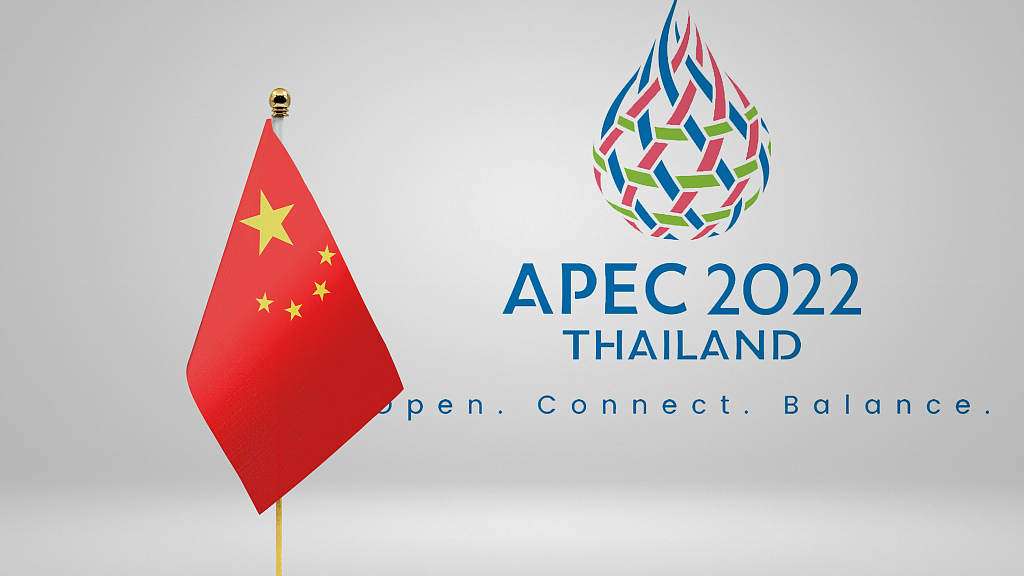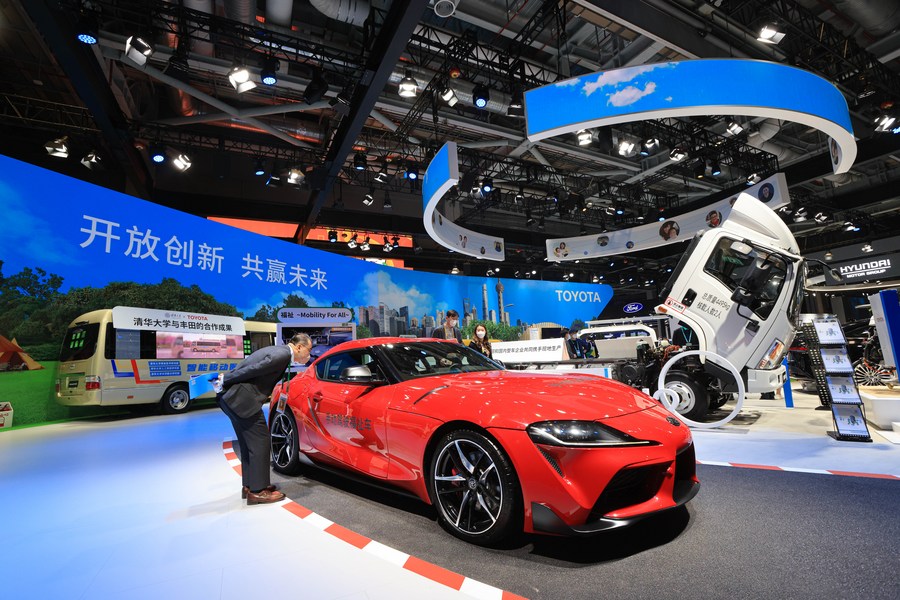
Editor's note: Qian Feng is a senior research fellow at the National Strategic Institute, Tsinghua University and Taihe Institute. The article reflects the author's opinions and not necessarily those of CGTN.
Asia has caught the attention of the world. The Group of 20 (G20) Bali summit has just concluded. The 29th Asia-Pacific Economic Cooperation (APEC) Economic Leaders' Meeting has also closed in Bangkok, Thailand, becoming the last of the three conferences of the "Asian Moment." In this era of interwoven chaos and change, people in Asia-Pacific expect that the participating countries can stay true to their original intention, can focus on the economic and people's livelihood by promoting the opening-up and cooperation, and can bring more benefits to Asia-Pacific and the international community through this economic cooperation forum, which has a great impact on the Asia-Pacific mechanism.
Since APEC's establishment over 30 years ago, Asia-Pacific has maintained peace and stability, booming regional cooperation and rapid economic strength. During this period, it has withstood the severe test of the financial crisis and other risks, rode the wind of economic globalization, and created an "Asia-Pacific miracle" that has attracted worldwide attention. This has made the region, which accounts for one-third of the world's population, now becoming the most dynamic growth zone, accounting for more than 60 percent of the world economy and nearly half of the global trade. Practice has proved that APEC is a big family. Building an open Asia-Pacific economic pattern featuring innovation, interconnected growth and integrated interests serves the common interests of all members and makes crucial contributions to the economic take-off of Asia-Pacific.
Since it officially joined APEC in 1991, China as a member of the Asia-Pacific family, has participated in APEC activities with a spirit of cooperation, and played a positive role in building an open world economy, supporting the multilateral trading system and leading economic globalization. At previous APEC informal leaders' meetings, Chinese national leaders have put forward many positive, balanced and reasonable policy propositions and initiatives, which have been welcomed by Asia-Pacific economies.
China has not only said but done more to the stability and prosperity of Asia-Pacific. In recent years, from jointly building a high-quality Belt and Road Initiative, which has established a broad platform for the Asia-Pacific connectivity construction, to proposing the Asian Infrastructure Investment Bank and the Silk Road Fund, both of which have forged new investment and financing programs, to holding the China International Import Expos and other high-level open exhibitions, which have provided more business opportunities for the Asia-Pacific economy, China's actions demonstrate its firm confidence and unchanging determination to take root and benefit Asia-Pacific.

A visitor looks at a car at the booth of Toyota at the fifth China International Import Expo in east China's Shanghai, November 6, 2022. /Xinhua
A visitor looks at a car at the booth of Toyota at the fifth China International Import Expo in east China's Shanghai, November 6, 2022. /Xinhua
At present, the situation in Asia-Pacific is stable, and regional cooperation is making much progress. Peaceful development and win-win cooperation are the mainstream.
Meanwhile, geopolitical tensions and the evolution of the economic pattern have impacted the development environment and cooperation framework in the region. With repeated COVID-19 outbreaks, increasing downward pressure on the world economy, rising risk of recession, and more destabilizing and uncertain factors. The rising Cold War mentality, unilateralism and protectionism pose a serious challenge to peace and development in the region. While confronting complex and severe challenges, Asia-Pacific countries are closely watching China, the world's second largest economy, and waiting for China's solutions.
In recent days, during the intensive diplomatic activities, from Bali, Indonesia to Bangkok, Thailand, Chinese President Xi Jinping has explained the rich connotation of China's development concept to the heads of international organizations and political leaders in the new era, while putting forward China's viewpoints.
From Xi's three-cut proposal that Asia-Pacific should follow the "path of peaceful development," "openness and inclusiveness," and "solidarity," to his six-point initiative on promoting economic integration in the region and jointly exploring new prospects for development, all these are in line with the aspirations of Asia-Pacific countries to seek peace and development, and they provide Chinese wisdom for the region to strengthen cooperation and achieve common development. It shows that China will pursue a win-win strategy of opening up, adhere to true multilateralism, promote the building of an open world economy, and provide China's new development with new opportunities and provide more stability and certainty for the turbulent world. All these have made the international community see more clearly a China that remains true to APEC's original intention and committed to closely linking its development with the development of Asia-Pacific.
A flower is not a spring, and a lonely wild goose is difficult to go. China's economic development has been integrated with the process of Asia-Pacific regional cooperation. Much of China's total foreign trade and its attracted foreign investment have also come from APEC members. Although China's economic size is bigger than 30 years ago, its original intention of participating in the APEC has not changed. China will, as always, bear in mind and uphold the spirit of the Asian family, work with Asian countries, put the Asia-Pacific economy at the forefront of world economic recovery, and continue to write the "Asia-Pacific miracle."
(If you want to contribute and have specific expertise, please contact us at opinions@cgtn.com. Follow @thouse_opinions on Twitter to discover the latest commentaries in the CGTN Opinion Section.)